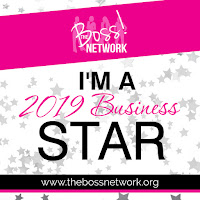5 Tips to Launch a New Career Using Your Transferable Skills By Natasha Miller Williams
 |
| Photo Credit: www.THREE20Media.com |
From thrift store and newsletter, to client service, operations, marketing, and now human resources, I’ve taken my ability to articulate a value proposition to each new job. These moves weren't all easy; hiring managers want someone with experience. It was up to me to express my capabilities, even if I’d never done similar work.
At times, you, too, will want—or need—out of your field. Changing fields requires showcasing your transferable skills. Transferable skills are aptitude and abilities that you can take from one job to the next—special things you do exceptionally well that others seem to always call upon. Whether learned or innate, used at work, home, or volunteering, your transferable skills are your ticket to a different career path.
Think you’d like to launch a new career using your transferable skills? Here are five tips to get started:
1. Know your transferable skills. Ask yourself, “What do I make look easy?” Think about your personal and professional accomplishments and the common themes of your contributions. Jot them down and look for words that are repeated. Words like: Delegated. Time Management. Solved. Organized. Operated. Analyzed. Efficient. Dependable. Resourceful. Developed. All reflect your transferable skills.
For example:
Establishing timelines for your family’s move is extremely relevant to organizations seeking project managers (key transferable skills: “organized,” “managed”).
Ever worked in food service? You know first-hand the patience and empathy required to get an order correct. You can easily take these attributes to a career in client service (key transferable skills: “patient,” “empathetic,” “attentive to customer needs”).
Specialized skills can set you apart—like being a subject matter expert of your employer’s systems. You can’t take the software to your next job, but your ability to train others on systems makes you an attractive candidate (key transferable skills: “leadership,” “training”).
2. Identify what you don't want to do. Leveraging transferable skills will allow you to consider hundreds of new roles. While this breadth is exciting, it can also be intimidating. Where do you begin with all those possibilities? When you aren’t exactly sure what you want to do, try saying what you don’t. If you know you don’t want to work in business development or enter the manufacturing industry, cross them off. Eliminating potential jobs helps whittle down the list to areas that interest you most.
3. Create a skill-oriented resume. Organize your resume functionally versus chronologically. Take all of the bullet points from your resume and put them in a single list. From there, begin grouping by similar skill. You should be left with categories of your transferable skills. Each set represents how you've applied that specific ability across various jobs. Review each bullet point, tap into your inner narcissist, and describe your skills and accomplishments putting yourself in the best possible light. Nothing is more off-putting than a resume that highlights what everyone but the resume-holder accomplished. Say what you did and how it benefited your employer. Title each section with a clear, punchy heading that allows readers to envision your success at their company, like “Rich Mix of Project Management & Sales Skills.” See sample resumes below.
4. Make friends across industries. Bachelor of Arts? Bachelor of Science? Haven’t we been separate too long? If you’re a member of any association, it’s probably related to your current job. What better low-risk way to get a glimpse into a field than to join an association that differs from your background? There’s no reason a data processor can’t be a member of the Association of American Educators. Attend a conference or volunteer in your area of interest. You’ll meet new people in your aspirational field and have an inside track to industry news. This helps when you begin to interview.
5. Be open to the job even if the title is over- or underwhelming. Be aware that when switching fields, your current title might not await you. This doesn't mean it's the wrong move. The fact is, seniority and responsibility vary widely across industries. Your Manager title at your current employer could align to a VP (or Analyst) at the next. Don’t be overly concerned about whether the job title is moving in the direction you envisioned; just be sure your interests do.
You must be able to articulate your strengths and the results you've seen from leveraging them. Sing your own praises unabashedly. But don’t stop there; take it a step further and connect the dots for the potential employer. Some hiring managers or recruiters will need you to bridge your transferable skills to their open role, so be prepared to explain how the thrift store you opened and managed developed your procurement and sales skills. Tell them how you can apply both to their open sourcing manager role.
Oh wait, that’s my story. But you get the point.
Connect with Natasha Miller Williams
on Twitter @nlynniewillie and follow her Linkedin.




I’ve never been very good at self analysis, but I did what you said and asked myself, “What do I make look easy?” Lo and behold, I’ve discovered transferable project, entrepreneurship and communication skills that I’d forgotten I had! I’ve been a freelance writer for several years now, but I didn’t realise I had so many options. Thank you.
ReplyDeleteMaribeth Curley @ UP Communication